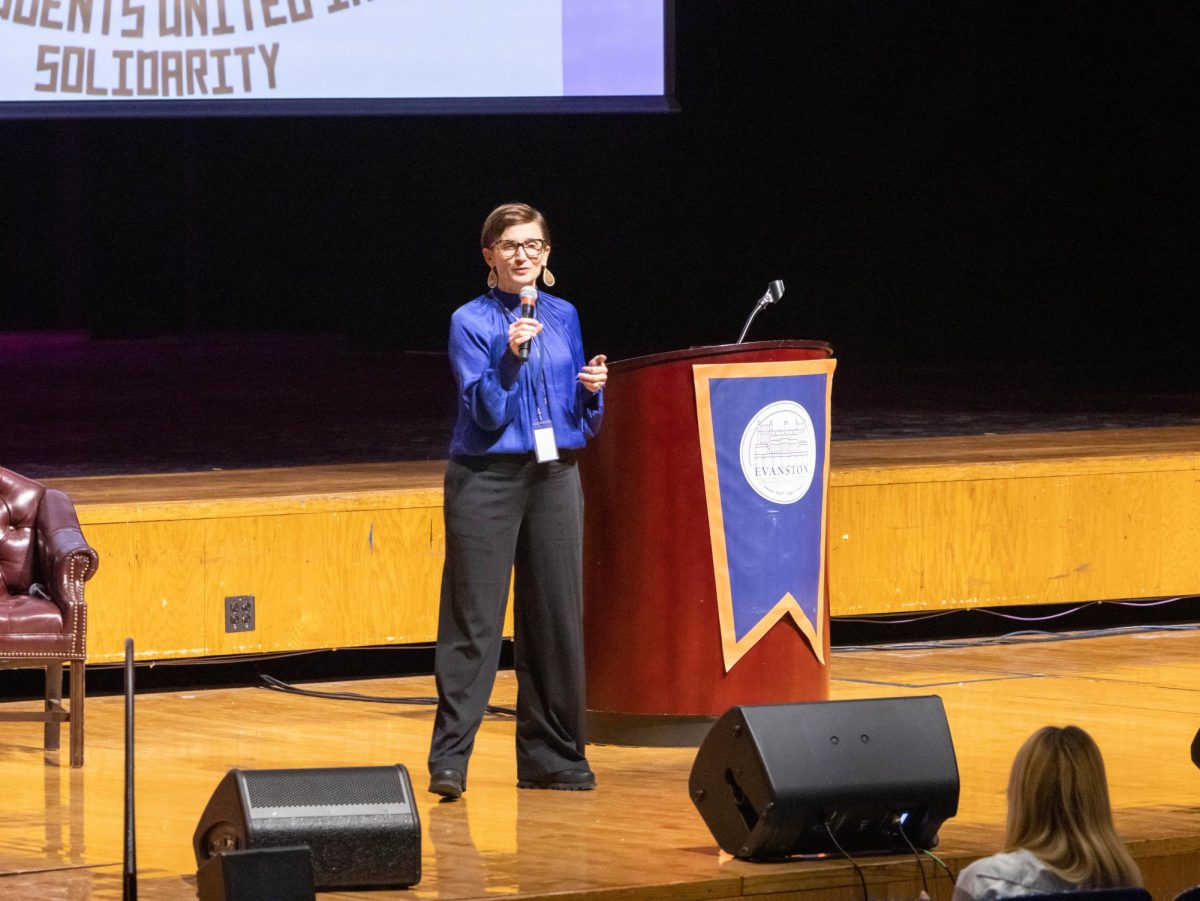Opinion | What’s the point of college, anyway?
October 14, 2022
College is a looming prospect that many seniors (myself included) must come to terms with sooner rather than later. But in addition to the anticipation of going to college, I have recently found myself thinking about why we’ve been so heavily encouraged to go and, more prominently, what the actual benefits of going to college are as opposed to the perceived, or espoused benefits. A college degree doesn’t automatically guarantee you’ll get a job, yet we’ve been told that college is a necessity. That notion is stigmatized and outdated.
“[Going to college] comes from the fear of not having the best life possible. You hear a lot of FOMO these days that seems to come [mostly] from parents and teachers projecting this idea that if you just work hard enough, you can have the perfect life, and college [needs to be] a part of that equation,” says Dr. Bethany Walker, a therapist at Light on Anxiety, a Cognitive Behavioral Therapy treatment center. “I would disagree with that. There are a lot of people who have careers they enjoy. Or careers that pay the bills, but they have other enriching parts of their lives, [allowing them to live] happy, fulfilling lives.”
From the individuals I talked to, they expressed how the pressure to attend college is a goal parents and guardians have for their children, passed down to future generations.
“It’s the path that all of the advisors in our life have told us to [follow]. High school advisors, tutors, any type of authority or guiding figure [imply that we’re] expected to go to college. Everything else is looked at as a secondary option. Especially with the ever-more competitive job market, a college degree is incredibly valuable and sets you apart,” says Ben Gordon, an ETHS graduate and freshman at Northwestern.
Noah Reichlin, a senior at ETHS, agrees that it is generational.
“There’s a pressure to go to college mostly because of parents and previous generations. Family is telling you that you should go to college, at least from what I’ve been experiencing. Family is telling you that college will set you up for success, at least [according to] their version of success,” Reichlin says.
The stigma surrounding not going to college is something preserved by these ideas from many students’ parents and guardians.
“I definitely think there’s a stigma in most cases. When employers are hiring people, and they see that someone didn’t take their education ‘far enough,’ that kind of puts them at a disadvantage. People should be able to do what they feel comfortable doing. In many cases, people who don’t go to college end up happier, and some of them end up more successful, depending on how you define success,” Reichlin states.
For Reichlin, success is, “Happiness and fulfillment in your [areas of] interest and [hobbies],” a belief that many parents and guardians don’t share, instead defining success as the amount of money you make and how you can be a productive member of society.
Gordon also recognizes that divide between genuine interests and had a similar line of thinking.
“I feel like there is somewhat of a stigma around not going to college. If you asked 100 people what they thought someone should do after they graduated high school, at least 90 percent of them would say, ‘Go to college.’ I feel like if you don’t have a college degree, then other people look down on you and perceive you as less than or not as smart as others. Even if you go to trade school or straight into the workforce, [which] is the same level of difficulty and importance as college,” Gordon continues.
If college has so much stigma and pressure surrounding it, ideally it should benefit the students the most, right?
Gordon thinks so. “Primarily, it benefits the students; it’s there for them. If society as a whole didn’t want to further grow students into becoming more educated and more experienced people before they went off into the ‘real world’, then college wouldn’t be successful. You would get your high school diploma and be done. But [enough] people thought that more [education] was needed. College is there to grow people into the best versions, or at least a more mature version, of themselves. [College] primarily benefits the people who it’s trying to help, which is a good thing.”
However, myself, Dr. Walker, and Reichlin, have more negative views about college.
My mom went through several years of school to receive a masters in teaching, only for the administration at Chicago Public Schools to prevent her from being hired within CPS. She had more education than most CPS teachers, and CPS requires a higher salary for higher degrees. CPS did not have enough funding to be able to hire and keep her hired, because it would require them to pay her more, due to her academic achievements. In this case, college hindered her more than it helped. My mom ended up leaving teaching and received a certificate in coding, now working as a digital engineer.
College also disproportionately affects students with mental illness.
“It benefits people who are set up for success, for people who are ready for college, not just academically, but socially and emotionally [for] those years to be a good part of their life and not [get] overwhelmed or overcome by the stressors of college,” says Dr. Walker. This excludes people with mental illnesses, which is one in five adults.
Another nuance that is often overlooked when talking about college is the financial accessibility of higher education. According to TheBestColleges.org, the cost of private school rose by 129 percent since 1980, and for public school: 213 percent. Compounded with the fact wages have only risen by 67 percent since 1970, it is generally agreeable that college is inaccessible to the majority of Americans. The ones who can afford it, however, have most likely accumulated generational wealth to pay for college—and those people are most often white.
“I would say [college] benefits [primarily] white people. I think it [also] benefits people who have connections to other people who are notable, [and] people who have money. So if you’re white, rich, and you have connections, you’re gonna basically get into wherever you want. That’s how it’s been, and that’s how it still is,” says Reichlin. This excludes 40 percent of the population in the US, 60 percent being rich and white (from USAFacts.org).
We’ve been so heavily conditioned to think that college is our future and, without it, we’re lost to the whims of life. Many people aren’t able to afford the luxury and safety a college degree provides, though, and even though the work they do is often the most valuable for society, it’s often looked down upon as being a job that no one else wants to do. College was originally made to benefit some people but not others, which would be excusable if they were working to fix that narrative. The problem arises when colleges continue to perpetuate the privilege of whiteness and social class. Colleges are doing nothing to diversify their demographics, leading to a never ending cycle of generations who are unable to get the education they need for either a respectable salary, or a livable wage.










